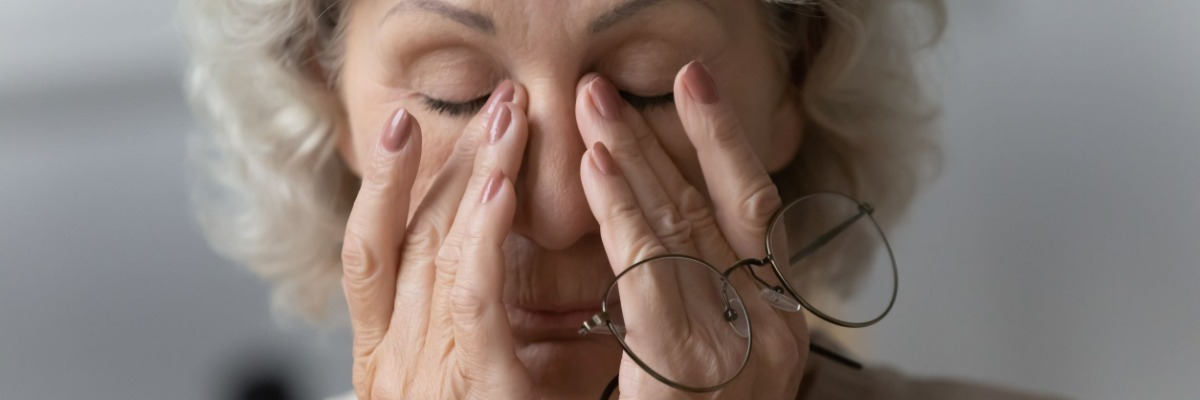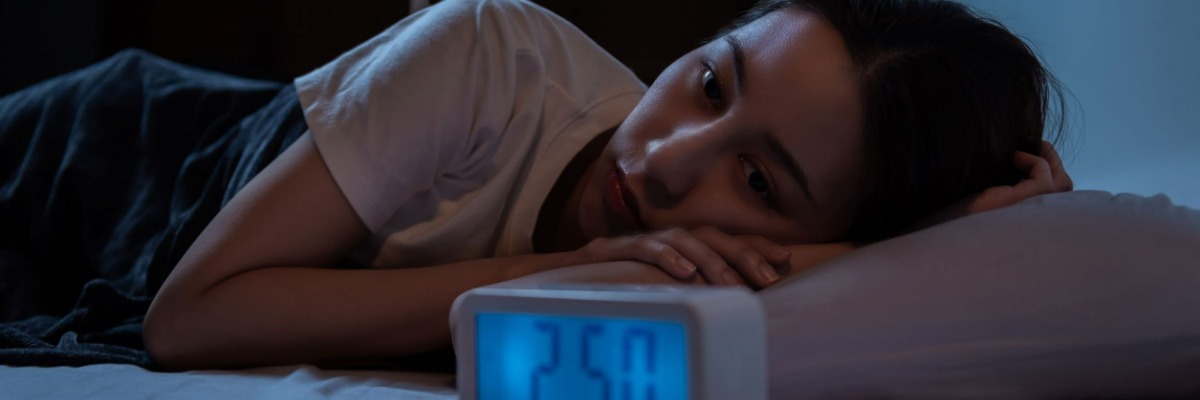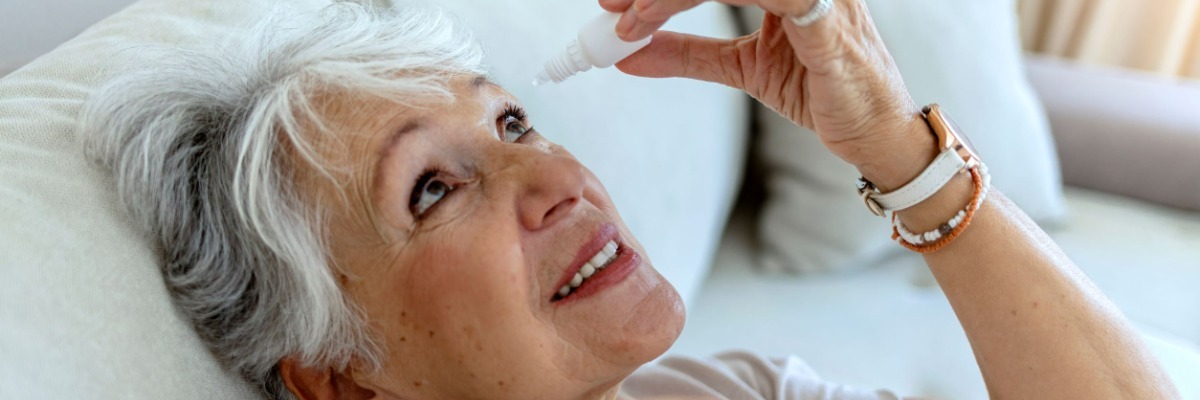Everything You Need To Know About Dry Eye
Are you suffering from Dry Eye and unsure about why your symptoms occur and what to do about it?
In this blog, we tell you everything you need to know about Dry Eye syndrome, with frequently asked questions that may help you manage your dry eye symptoms.
What is the main cause of Dry Eye?
Dry Eye is caused by your eyes not producing enough tears, or your tears drying up too quickly. A number of factors can contribute to this, including looking at electronic screens for too long, being in an air-conditioned, dry or windy environment and drinking alcohol or smoking. Taking certain medications can dry your eyes out too, however, if you stop taking the medication in question your Dry Eye symptoms can go away.[1] Medication should never be stopped without consulting your GP or doctor first, so always check with them before you stop taking anything.
How do dry eyes feel?
Dry eyes can feel very uncomfortable, and in more extreme cases, it can be painful. If you have dry eyes they may feel:
- Gritty
- Itchy
- Sore
- Watery
- Sensitive to light
- Blurry
Eye drops can help ease this irritation. We advise speaking to a medical professional about what treatment options are right for you.[1]
How do dry eyes affect vision?
If you have a mild case of Dry Eye, it is unlikely that it will cause any permanent damage to your eyesight, especially if you receive treatment to ease your symptoms. If you suffer from a more severe case of Dry Eye, the cornea of your eye can become damaged. This can cause you to experience eyesight problems such as blurry or cloudy vision, and in some cases can lead to blindness.[2]

What can dry eyes be a symptom of?
Dry eyes can be a symptom of a number of conditions that you may suffer from. Sjogren’s Syndrome affects fluids in the body, including tears, so can therefore cause Dry Eye as a result. Blepharitis is a temporary but uncomfortable condition that can cause gritty and dry feeling eyes.[1] Dry Eye can also be a symptom of menopause. During menopause the decrease in the androgen hormone effects certain glands in the eyes, which produce oils that are essential for tear production. As a result, this can lead to increased tear evaporation and dry eyes.[3]
Does Dry Eye go away?
Sometimes Dry Eye symptoms can go away on their own, especially if it’s down to an environmental factor. These factors may be things like prolonged screen use, dry conditions and dietary issues. Often changing these lifestyle factors can reduce or get rid of your symptoms.
If your Dry Eye is a chronic condition, the symptoms can be managed and lessened, but will not completely go away. Chronic Dry Eye means your eyes can’t produce enough tears to keep your eyes moist, so is therefore down to a medical factor rather than a lifestyle factor.[4]
Can lack of sleep cause Dry Eye?
Sleep is important for eyes, as studies have shown that for your eyes to properly refresh you need at least five hours of sleep. A lack of sleep can therefore cause Dry Eye, as your eyes have not had enough time to refresh and they are not effectively lubricated. This can lead to pain, light sensitivity, itching, redness or blurry vision.[5]

Does drinking water help dry eyes?
Drinking more water helps you stay hydrated, which can in turn help your eyes stay hydrated and moist. You should aim to drink eight to ten glasses of water a day to maintain proper hydration levels and help ease your dry eyes.[6]
How can I treat Dry Eye at home?
There are a few ways you can ease your Dry Eye symptoms at home. Ensure you clean your eyes daily, to get rid of any dust or dirt that may be trapped in your eyes. You can do this by soaking a clean flannel in warm water, and placing it over your eyes for five to ten minutes. Then massage your eyelids for around thirty seconds to release any dirt, before wiping it away.[7]
Limit your use of electronic devices, or make sure that you have regular breaks if you need to use screens for work purposes. Purchase a humidifier to add more moisture into the air. If you wear contacts, wear glasses when you can to rest your eyes.[1]
Is it ok to use eye drops every day?
You should always listen to your doctor’s advice when it comes to how regularly you use your eye drops, as every case is different. Most eye drops are usually recommended to be taken twice a day, depending on the severity of your symptoms and the kind of eye drops you are using. If you feel that you need more eye drops per day, you should consult with a healthcare professional.[8]

What are the best drops for dry eyes?
Artificial tears are usually the option most commonly used for dry eyes. They keep your eyes moist and help to heal the surface of your eye, which helps to reduce irritation. Some do contain preservatives which can irritate your eyes more if they are particularly sensitive, so make sure to look out for preservative-free options like the VisuXL® drops.
You can also use allergy drops if your symptoms are caused or worsened by common allergens. They contain antihistamines to stop allergy symptoms like runny nose and itchy, uncomfortable eyes.[9]
In most cases, the best way to treat dry eyes, Also known as dry eye syndrome, is to use eye gel or eye drops.
VisuXL Gel® is a preservative-free smart gel lubricant for dry eye syndrome. It provides comfort in a bottle with it’s long-lasting lubrication properties giving 12-hour dosing with just one drop and is suitable for both day and night use.
VisuXL® is a preservative-free eye drop lubricant for dry eye syndrome. Due to its unique ingredients, VisuXL® will help you recover from eye surgery, an injury or persistent damaging dry eye.
VisuEvo® is a preservative-free eye drop that prevents excessive evaporation of the tear film. Its unique formula contains omega-3 essential fatty acids, Vitamins A and D and ultra-filtered phospholipids that facilitate tear film presentation and control evaporation.
All three products are contact lens-friendly and can be used for 180 days after opening.
Shop now
We hope this article has answered all your Dry Eye questions. However, if not please reach out to us on our socials, join our community on Facebook and Instagram and discover further advice to help your eyes.
References
- NHS England, ‘Dry Eyes’. Last accessed September 2022
- Fletcher, Jenna. ‘You ask, we answer: Can dry eye cause blindness?’, Medical News Today, 04/05/22. Last Accessed September 2022
- The Dry Eye Center Of NY & NJ, ‘What’s the Link Between Dry Eye and Menopause?’, 08/04/21, Last Accessed September 2022
- Cafasso, Jacquelyn. ‘Your FAQs, Answered: Can Dry Eyes Be Cured?’, Heathline, 03/09/21, Lasted Accessed September 2022
- Eye Health North West, ‘How Lack Of Sleep Affects Your Vision’, 20/11/12, Last Accessed September 2022
- Complete Eye Care, ‘How Does Hydration Affect My Eyes?’, Last Accessed September 2022
- NHS England, ‘Blepharitis’. Last accessed September 2022
- Barnet Dulaney Perkins Eye Center,’Are You Overusing Eye Drops?’, 22/05/19, Last Accessed September 2022
- WebMD, ‘Do You Use the Right Eye Drops for Your Dry Eyes?’, 21/06/21, Last Accessed September 2022




